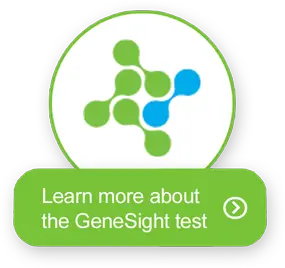
“Many well-intentioned adults still believe that children can’t get depressed,” writes Richa Bhatia, MD, FAPA, in an article on the Anxiety and Depression Association of America (ADAA) website. “They are so young – what do they have to be depressed about? When we were that age, we were just happy.”
Yet, Dr. Bhatia points out that childhood depression is a “real, distinct clinical entity. It is a serious health condition, which if left untreated, increases risk of future, prolonged and more severe depressive episodes. Untreated depression in childhood and adolescence can pose risk of suicide.”
When our child experiences sadness, cranky behavior, or fear, we often attribute it to the ups and downs of growing up. In many cases, we are right, and it is normal behavior. However, Centers for Disease Control and Prevention (CDC) statistics show that:
- 3.2% of children aged 3-17 (approximately 1.9 million) have been diagnosed with depression
- 7.1% of children aged 3-17 (approximately 4.4 million) have been diagnosed with anxiety
In its 2021: The State of Mental Health in America report, Mental Health America (MHA) shared that the mental health of children, progressively, has been worsening. MHA statistics show that youth with severe major depression has risen from 9.2% to 9.7% within the past year. According to the MHA report, “60% of youth with major depression did not receive any mental health treatment in 2017-2018.” The report additionally noted that, “even in states with the greatest access, over 38% [of youth] are not receiving the mental health services they need.”
What is the Onset of Depression?
The Cleveland Clinic reports that depression “can affect people of any age, including children. Although children naturally have mood swings as they grow and develop, depression is different.”
Depression in childhood impacts how children engage with loved ones and in activities. Children normally enjoy running, playing, and hanging out with friends. However, if they start experiencing depression, kids can withdraw socially and instead spend more time isolated in their rooms. Further, they may not engage in typical childhood activities like sports, arts and crafts, and doing their schoolwork.
“Childhood depression can be hidden and therefore easily missed,” Dr. Bhatia writes. “Timely recognition and treatment can be life-changing and life-saving.”
In fact, according to the MHA report, “in September 2020, over half of 11-17-year-olds reported having thoughts of suicide or self-harm more than half or nearly every day of the previous two weeks. From January to September 2020, 77,470 youth reported experiencing frequent suicidal ideation.”
Does Your Child Need Professional Help for Depression?

While there are symptoms that may help you recognize if your child is suffering, not all of the symptoms need to be present in order to be diagnosed with depression.
According to the Cleveland Clinic, these are signs of depression you may see in your child:
- “Behavioral problems at school
- Changes in eating or sleeping habits
- Feelings of sadness or hopelessness
- Lack of interest in fun activities
- Low energy levels or general tiredness
- Mood changes, such as irritability”
Additionally, the Cleveland Clinic suggests watching closely for the following suicide warning signs:
- “Focus on death and dying
- Giving away possessions
- Increased risk-taking
- Self-destructive behavior or self-harm
- Social isolation
- Talk of suicide or hopelessness”
Depression Diagnosis in Children
There’s no diagnostic test to determine if a child is suffering from depression and/or anxiety.
“Psychiatric disorders are diagnoses of exclusion,” writes Dr. Bhatia. That means that doctors will typically do other diagnostic tests to see if the symptoms the child is experiencing could point to a different ailment.
Other conditions that may mimic the symptoms of depression include undiagnosed anemia, hypothyroidism, or vitamin D deficiency.
Accordingly, the doctor may conduct a number of tests and a full medical evaluation to rule out any of these or other underlying conditions. Dr. Bhatia writes:
“For example, hypothyroidism (depressive symptoms, weight gain, low energy, cognitive difficulties, constipation). Even conditions such as undiagnosed anemia can mimic depression, due to accompanying fatigue/low energy. Vitamin D deficiency, common in cold climates, increases risk of depressive symptoms and fatigue. The good news is that these conditions have effective treatments, and treatment of the underlying medical condition in a timely manner should resolve depressive symptoms.”
“Rule out undiagnosed/untreated ADHD (attention Deficit Hyperactivity Disorder), anxiety disorders or other psychiatric conditions, which when left untreated, can result in depressive symptoms due to the impairment in functioning from ADHD or anxiety disorder itself.”
Five Ways to Help Your Depressed Child
An article written by Daniela McVicker for the National Alliance on Mental Illness (NAMI) suggests five ways that you can help your depressed child:
- “Learn How to Recognize the Warning Signs.” Observe your child and determine if they are exhibiting any of the symptoms of depression.
- “Get Them Professional Help.” The next step is finding the resources and support that can help your child feel better. You can reach out to their pediatrician, a mental health professional, or a mental health service. The American Academy of Child and Adolescent Psychiatry offers educational resources and other tips for caring for a child suffering from depression.
- “Give Your Child Emotional Support.” “Showing support, without being pushy, can help you gain your child’s trust, allowing them to talk about their problems and worries when they come up,” writes McVicker in the NAMI article. You can do this by spending time with them, encouraging them to talk to you openly about how they feel, listening to them, and acknowledging their struggles.
- “Encourage a Healthy Lifestyle.” Regular exercise, healthy eating, and a steady sleep schedule may help manage persistent symptoms. While you cannot force your child to take care of themselves, you can encourage them and model healthy behavior.
- “Help Them Feel Connected.” “A lack of interaction and connection can worsen depression symptoms.” For some children, being social is difficult, especially when they are depressed. Expect it will take time and don’t push too hard. Gently encourage them to get involved in school activities, clubs, or social events. You can plan social outings like suggesting they invite other kids to your house or organizing family gatherings.
More Information About Depression in Children and Teenagers
As parents, it is normal to worry about our children. With depression rates among young people rising, it makes sense to learn as much as we can about how depression impacts our children. Read these items for more information about childhood depression and anxiety.
https://genesight.com/blog/patient/depression-in-teenagers-signs-and-strategies-for-parents/
https://genesight.com/blog/patient/does-my-young-child-have-depression-symptoms-to-watch-out-for/
Our articles are for informational purposes only and are reviewed by our Medical Information team, which includes PharmDs, MDs, and PhDs. Do not make any changes to your current medications or dosing without consulting your healthcare provider.
The GeneSight test must be ordered by and used only in consultation with a healthcare provider who can prescribe medications. As with all genetic tests, the GeneSight test results have limitations and do not constitute medical advice. The test results are designed to be just one part of a larger, complete patient assessment, which would include proper diagnosis and consideration of your medical history, other medications you may be taking, your family history, and other factors.
If you are a healthcare provider and interested in learning more about the GeneSight test, please contact us at 855.891.9415. If you are a patient, please talk with your doctor to see if the GeneSight test may be helpful.







